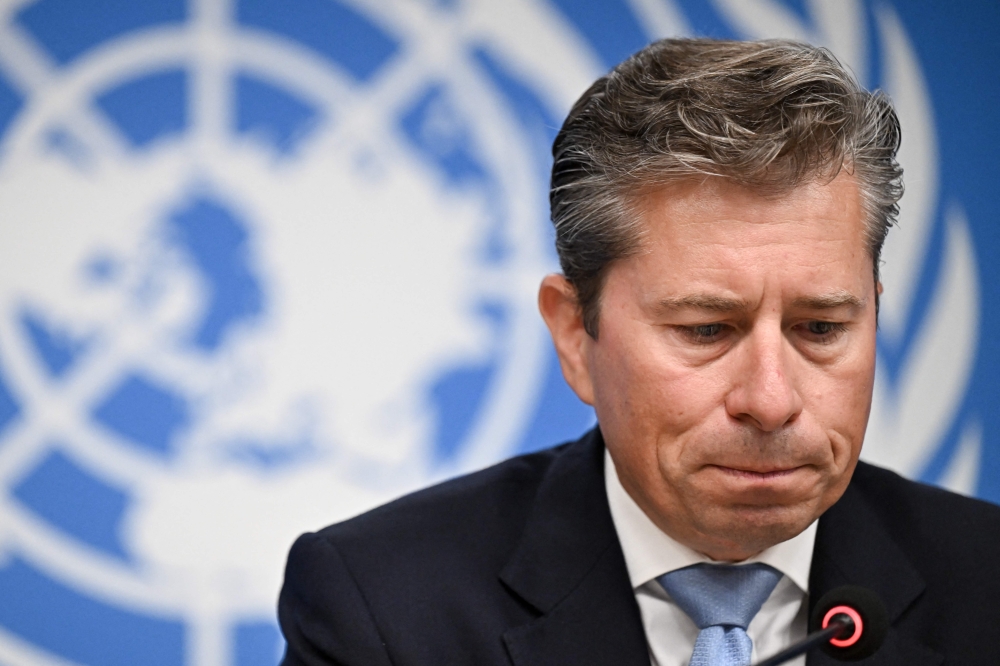KUALA LUMPUR, Aug 24 — The announcement by the UN-backed Integrated Food Security Phase Classification (IPC) that Gaza is now facing a “man-made famine” should have jolted the conscience of the international community.
Instead, it is being met with muted reactions, sterile debates, and even outright indifference.
When starvation — one of humanity’s most visceral horrors — is allowed to become a negotiating tool in geopolitics, the very moral foundation of the United Nations collapses.
This is not merely about Gaza.
It is about the debasement of the UN as a system.
A famine that is declared “entirely man-made” cannot be reduced to statistics in a report or a footnote in the annals of humanitarian failure.
It is the precise moment when the UN must prove its moral authority.
That it cannot, or will not, do so signals not just an organisational failure but a systemic unravelling of multilateral legitimacy.
Regional organisations — Asean included — derive their strength and legitimacy from the UN Charter.
Chapter VIII, in particular, outlines the role of regional arrangements in supporting international peace and security.
Asean’s entire ethos — the 5Cs of Consultation, Consensus, Collegiality, Cooperation, and Collaboration — is anchored in this framework.
When the UN wilts, Asean inevitably weakens.
If the UN no longer commands moral authority, then Asean’s claim to embody values such as non-interference tempered by human security becomes hollow.
It is no longer about Asean staying neutral in the US-China rivalry, or balancing trade-offs in global supply chains.
It becomes a deeper existential question: can Asean claim credibility when the very institution it mirrors and supports is seen as morally bankrupt?
The famine in Gaza crystallises this dilemma.
Asean often invokes its “centrality,” but centrality is meaningless without legitimacy.
And legitimacy is derived not from power but from moral force.
The UN’s inability to stop mass starvation, despite clear warnings from its own agencies, erodes that moral force.
Asean’s silence, in turn, shows its complicity in this erosion.

United Nations Under-Secretary-General for Humanitarian Affairs and Emergency Coordinator Tom Fletcher speaks on the famine in Gaza during a press conference in Geneva on August 22, 2025. — AFP pic
The nexus between the UN and Asean is far more intricate than generally acknowledged.
Asean is not a stand-alone club of ten states; it is a regional pillar envisioned by the UN Charter itself.
Every Asean declaration, from ZOPFAN to SEANWFZ, has drawn upon the legitimacy of UN principles.
The very idea of “Asean centrality” is meaningless without its connection to a functioning UN multilateral system.
But what happens when that system itself collapses in credibility?
When the Security Council is paralysed by vetoes, when General Assembly resolutions are ignored, and when humanitarian norms are trampled with impunity, Asean cannot claim insulation.
It cannot claim to be an island of moral clarity when its own bedrock is sinking.
The famine in Gaza shows this link vividly.
If the UN cannot prevent starvation in one territory under its constant watch, why should Asean assume that it could secure food, peace, or dignity for its own peoples when crises strike?
The credibility deficit trickles down, and Asean, too, begins to wilt.
The UN is now staring at its deepest crisis of legitimacy since its founding.
Not even the Cold War stalemates reached this level of moral collapse, because then, at least, the superpowers understood the need for certain humanitarian red lines.
Today, those lines are not just blurred — they are erased.
For Asean, this is a test of relevance.
If Asean continues to hide behind quiet diplomacy and refrains from speaking out against the erosion of humanitarian norms at the UN level, it risks becoming irrelevant.
Centrality becomes a shell, and Asean risks being remembered as an organisation that chose convenience over conscience.
The famine in Gaza is not just a tragedy of the Palestinian people.
It is a mirror, reflecting the weakness of the multilateral order.
The UN has lost its moral compass, and unless regional organisations like Asean recognise this, they too will drift aimlessly, bereft of meaning.
The time for hesitation has indeed passed.
Asean must decide whether it will uphold values that transcend power, or whether it will share the UN’s fate of debasement and decay.
In Myanmar, since the UN has practically done nothing, the locals have demeaned it by referring to it as United for Nothing.
When UN does not mean much, neither will Asean.
This is why Asean cannot operate in a world devoid of basic human rights, one of which is of course not falling prey to intentional starvation, which is what happening in Gaza.
* Phar Kim Beng, PhD is the Professor of Asean Studies at International Islamic University of Malaysia and Director of Institute of Internationalisation and Asean Studies (IINTAS).
** This is the personal opinion of the writer or publication and does not necessarily represent the views of Malay Mail.






